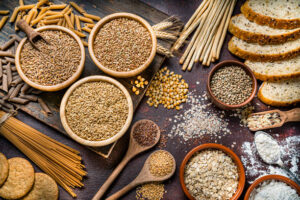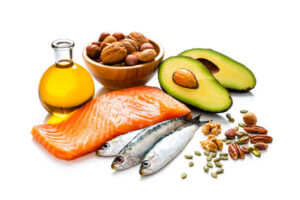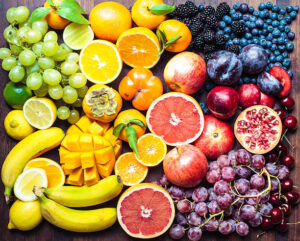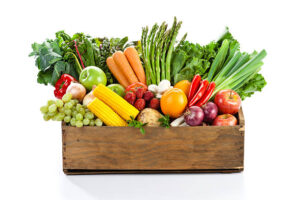
DIET PLAN FOR A HEALTHY LIFE :
In today’s fast-paced world, the importance of maintaining a balanced diet cannot be overstated. As we navigate through various food options, understanding which foods contribute to our overall well-being is crucial. Healthy foods provide essential nutrients, support bodily functions, and promote long-term health. This article explores key categories of healthy foods and their benefits, helping you make informed choices for balanced diet. Healthy eating protects us from many diseases as it is said :
“Turn your food into medicine and you won’t need medicines anymore”
Healthy foods include the following:
1. Whole Grains:
As we are looking for healthy foods whole grains can be an integral part of a healthy diet. They are also known as foundation of energy. whole grains retain their bran, germ, and endosperm, providing more nutrients and fiber.
Heart Health:
Consuming whole grains reduced risk of heart disease. The fiber in whole grains helps lower cholesterol levels and improves blood vessel function which prevent heart attacks and other heart diseases.
Nutritional Benefits:
Whole grains like quinoa, brown rice, oats, and barley are rich in B vitamins, iron, magnesium, and fiber. These nutrients play a vital role in energy production, muscle function, and overall metabolic health.
Digestive Health:
Whole grains contribute to a healthy digestive system by promoting regular bowel movements and preventing constipation.
2. Lean Proteins:
Lean proteins are essential for muscle repair, immune function, and overall health that’s why they are known as building blocks of body Unlike fatty cuts of meat, lean proteins provide high-quality protein without excessive saturated fats.
Satiety:
Protein-rich foods can cause increase in feelings of fullness and reduce overall calorie intake, which can aid in weight management.
Muscle Maintenance:
Protein is crucial for muscle growth and repair. Including lean proteins in your diet can help maintain muscle mass, especially important as we age.
Sources of Lean Protein:
Examples includes fish, legumes (beans and lentils), tofu, and low-fat dairy products. Fish like salmon and trout are particularly beneficial due to their omega-3 fatty acids, which support heart health and brain function.
3.Healthy Fats:
Contrary to popular belief, not all fats are harmful. Healthy fats, such as monounsaturated and polyunsaturated fats, are vital for numerous bodily functions
Heart Health: Healthy fats can help lower bad cholesterol levels (LDL) while increasing good cholesterol (HDL). This balance supports cardiovascular health.Brain Function:
Omega-3 fatty acids, found in fish and flaxseeds, are essential for brain health and improves brain functions.
Sources of Healthy Fats:
Avocados, nuts, seeds, and olive oil are excellent sources. Fatty fish like salmon and mackerel also provide heart-healthy omega-3 fatty acids.
4. Hydration:
While not a food, hydration is a critical component of a healthy diet. Water plays a fundamental role in nearly every bodily function, from digestion to temperature regulation and electrolytes balance.
Daily Intake:
Aim to drink at least eight 8-ounce glasses of water a day, though individual needs may vary based on activity level and climate.
Hydrating Foods:
Many fruits and vegetables have high water content and can contribute to hydration. Cucumbers, watermelon, and oranges are excellent examples to keep yourself hydrated.
5.Dairy and Dairy Alternatives:
Dairy products and their alternatives offer important nutrients for bone health, particularly calcium and vitamin D.
Calcium:
Essential for bone density and strength, calcium is found in dairy products like milk, cheese, and yogurt. For those who are lactose intolerant or prefer plant-based options. calcium is also needed for strong bones and teeth.
Probiotics:
Some dairy products, such as yogurt, contain probiotics that support gut health by promoting a healthy balance of gut bacteria.
Vitamin D:
Vitamin D works synergistically with calcium to promote bone health. Dairy products are often fortified with vitamin D, and it can be obtained mainly by sunlight when sunlight exposures with skin it retain vital nutrients.Moderation and Balance:
While focusing on healthy foods is important, moderation and balance are key principles of a sustainable diet and long term success. No single food can provide all the nutrients your body needs, so aim for a varied diet that includes all food groups in appropriate proportions.Portion Control:
Be mindful of portion sizes to avoid overeating, even with healthy foods. Balanced meals that include a mix of proteins, carbohydrates, and fats are ideal this helps us to stay away from diseases and overeating.Occasional Treats:
Allowing yourself occasional treats can prevent feelings of deprivation and promote a healthier relationship with food. The key is moderation and ensuring that the majority of your diet consists of nutrient-dense foods.
Here is a list of some healthy fruits :
1.Blueberries – Rich in antioxidants and vitamins.
2.Avocados – contain many healthy fats and fiber.
3.Oranges – best source of vitamin C and fiber.
4.Bananas – Provide potassium and vitamins B6 and C.
5.Strawberries – High in vitamin C and antioxidants.
6.Pomegranates – Rich in antioxidants and vitamins.
7.Kiwis – contain vitamin C, vitamin K, and fiber.
Here’s a list of some of the healthiest vegetables:
1.Spinach – Rich in iron, vitamins A and C, and antioxidants.
2.Broccoli – High in vitamins C and K, fiber, and sulforaphane, which has been shown to support detoxification.
3.Kale – contain vitamins A, C, and K, as well as antioxidants and fiber.
4.Carrots – Excellent source of beta-carotene (vitamin A), fiber, and antioxidants.
5.Brussels Sprouts – High in vitamins C and K, fiber, and compounds that support detoxification.
6.Sweet Potatoes – Rich in beta-carotene (vitamin A), vitamin C, and fiber.
7.Bell Peppers – Loaded with vitamins A and C, as well as antioxidants like quercetin.
8.Tomatoes – High in vitamins C and K, potassium, and lycopene, an antioxidant linked to reduced cancer risk.
9.Garlic – Contains allicin, which has anti-inflammatory and immune-boosting properties.
10.Beets – Rich in folate, fiber, and antioxidants like Betalains.
Conclusion:
Adopting a diet rich in fruits, vegetables, whole grains, lean proteins, and healthy fats is essential for maintaining optimal health and well-being. By making informed food choices and practicing moderation you can support your body’s need.








very knowledgeable 👍🏻✅
Very helpful health tips. Great blog
I appreciate how you emphasize nourishing our bodies, rather than restricting ourselves. Your passion for healthy living is contagious, and I’m so grateful to have found your blog. Keep sharing your wisdom. I’m a fan.
Thanks for the practical tips.
Thank you for your kind words! We’re thrilled to hear our tips resonate with you—here’s to a healthier you with Healthstorica!
This is a must-read for anyone interested in this topic.
Thank you for your kind words! We’re glad you found our post valuable. Feel free to share any topics you’d like us to explore further. – Healthstorica
This is such a valuable resource. I’ve learned so much from this post, and I appreciate the practical advice you’ve shared.
Thank you for your kind words! We’re thrilled to hear our tips resonate with you—here’s to a healthier you with Healthstorica!
Very well explained thankyou!
Thanks for this information 🙂
The content in this blog is truly eye-opening. Your perspective on this topic is refreshing! I appreciate the detailed information shared here. I’ve been searching for information like this for a while. This article is a treasure trove of information! Such a helpful article, thanks for posting! I’ve been searching for information like this for a while.
This blogpost answered a lot of questions I had. I can’t wait to implement some of these ideas. Your perspective on this topic is refreshing! Such a helpful article, thanks for posting! Your perspective on this topic is refreshing! Your writing style makes this topic very engaging.
Fantastic job covering this topic in such depth! Thank you for breaking down complex concepts so clearly. This post is really informative and provides great insights! Excellent post with lots of actionable advice! Thanks for taking the time to put this together! This article is a treasure trove of information! Fantastic job covering this topic in such depth! I enjoyed reading this and learned something new. Fantastic job covering this topic in such depth!